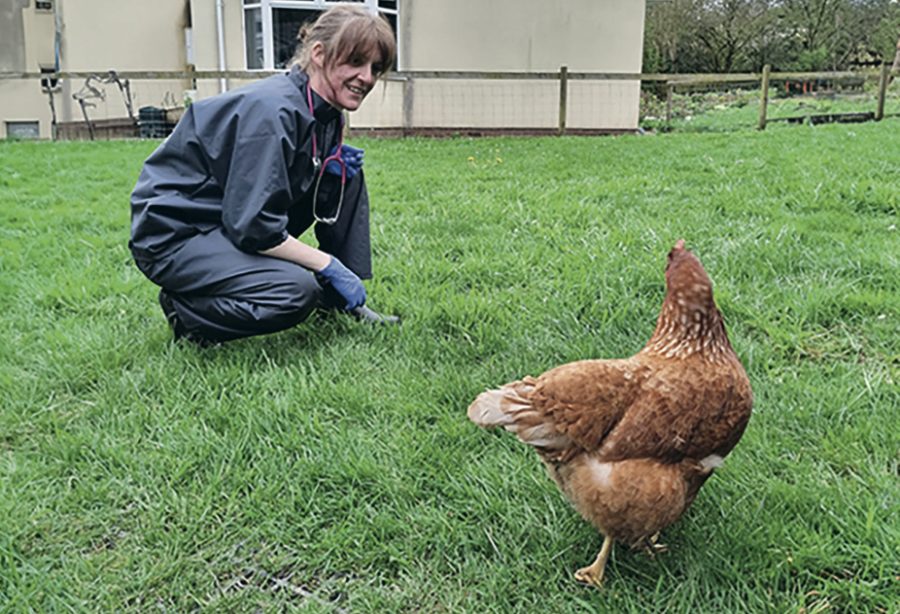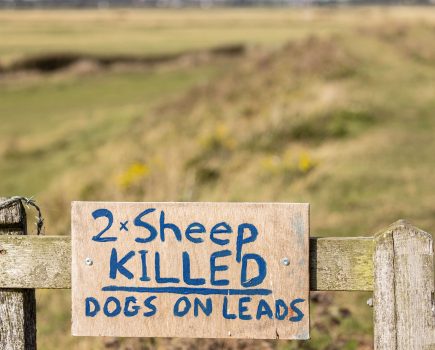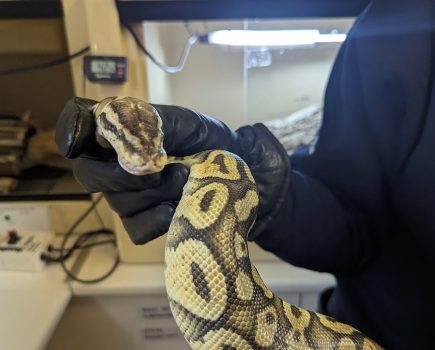Poultry vet, David Parsons, looks at bird registration requirements following the avian influenza pandemic, and chats to a mobile chicken vet…
AVIAN INFLUENZA
You will probably be aware by now that there has been a change to the registration requirements of the GB Poultry Register which will be coming into force on September 1st 2024 in Scotland and October 1st 2024 in England and Wales. This follows a 12-week consultation period last year. It requires all poultry to be registered. Apparently, The consultation received 3,419 responses. 3,387 were submitted via the Citizen Space website. Of the 3,387 responses received via the Citizen Space website, 3,148 were from individuals, 81 from businesses, 34 from sector trade bodies, 7 from research organisations, 19 from charities, 27 from local authorities and 101 from other types of organisations.
THE ORIGINAL CONSULTATION QUESTION:
Question. 11: Please state your preferred option. Please explain the reasons for your answer
- Baseline: do not change the current poultry registration requirements.
- Option 1: (Government preferred option) extend the registration requirement to all bird keepers, including mandatory annual update to the registration information.
- Option 2: extend registration requirements to a keeper of 10 or more birds, including mandatory annual update to the registration information.
- Option 3: I or we don’t have a preferred option.
HOW THE QUESTION WAS ANSWERED
The majority (75%) of respondents did not want a change to the current registration requirements (‘Do nothing’). Option 1 was only selected by a small proportion of respondents (13%) and Option 2 by only 11%. 2% of respondents did not have a preferred option.
Personally, I am not surprised at this result. From the authority’s perspective, being able to rapidly inform poultry owners in a given area when there is a problem, will be invaluable.
My concern is more practical. There will be a significant number of bird owners who do not have access to computers or the internet. Added to those will be others with limited spelling ability, poor eyesight and the fact that English is not their native language.
All of this compounded by poorly phrased questions could result in significant numbers of poultry owners suffering mental trauma attempting to meet these deadlines. So if you have friends or colleagues that may find registering a challenge. I hope that you will assist them in whatever way is needed.
THE MOBILE CHICKEN CLINIC
I recently had an interview with Dr Sharon Evans (pictured with a patient, main image), MRCVS, who has set up a mobile Chicken Clinic in the Bristol area. Q&A below:
David Parsons (DP): Sharon, what inspired you to want provide veterinary services for backyard poultry?
Sharon Evans (SE): Before I trained to become a vet, I kept pet poultry. I started with White Star and Bovan Nera hens, plus three Khaki Campbell ducks. I later hatched some Cochin eggs and began rehoming ex-commercial laying hens with the British Hen Welfare Trust. I would take home the poorly hens to nurse back to health. These birds had so much character and were a joy to be around, and they also provided delicious eggs for breakfast. I was hooked. Inevitably, some birds needed a vet and trying to find a vet knowledgeable about poultry – and comfortable treating birds – was a challenge, which offered limited treatment options. This was my motivation for retraining to become a vet with a particular interest in poultry. My aim is to make a positive contribution to how vets approach the care of pet poultry.
DP: So training to be a vet is your second University degree?
SE: Yes, after gaining my first degree in Biomedical Science, I had a successful career at the National Blood Service. Trying to find a vet that would see my birds was always tricky, they were often willing, but lacked specific knowledge, so I decided to quit my job and go back to university to learn myself.
My experience in handling and providing supportive care gained as a volunteer in wildlife rescue and as a hen carer prior to veterinary college was invaluable. Since graduating as a mature student, I’ve worked with commercial poultry to gain a solid grounding in poultry diseases, preventative medicine, biosecurity, husbandry, nutrition and welfare.
DP: When did you start your practice?
SE: I started the Chicken Clinic in August 2023. It’s a home visit service in and around Bristol. I visit the birds in their home which allows me to see the birds natural behaviour in their own environment. This provides useful information on husbandry, nutrition and their interaction with other birds in the flock. I think the clients get better value for money with this approach, and it’s far less stressful for the birds than being taken to a regular vet practice.
DP: What species have you had to look at?
SE: Mostly chickens, although I’ve seen a few ducks and some beautiful coturnix quail.
DP: What breeds have you had to examine?
SE: I see a lot of commercial hybrid, rescue hens but there have been some ‘hatched at home’ hybrids that have really tested my knowledge of breeds!
DP: What type of problems have you been asked to help with?
SE: The most common problems I see are, in no particular order, parasites, crop issues, reproductive problems, respiratory issues and changes in faeces.
DP: What is the most interesting problem have you had to date?
SE: I had a patient that presented with neurological symptoms, he seemed a little depressed and was walking backwards and head shaking … I was expecting this to be something horrible, but after some lateral thinking I realised his head feathers were slightly covering his eyes – we trimmed his fringe and now he’s a perfect little Silkie!
DP: What recommendations do you have on worm control?
SE: Check for the presence of worms before you treat them. There are worm “egg kits” available to buy, the results are usually available in a day or two. It’s necessary to know what worms are present, and in what numbers before starting a treatment. We need to be very careful with the use of worming treatments as there are few options available. If we use them unnecessarily or overuse them, then we risk seeing problems with resistant worms. We’ve already met a similar challenge with antibiotics and resistant superbugs.
I’d also recommend ‘poo-picking’. The birds are likely to become infected with worms from pecking at the ground if it’s contaminated with worm eggs, so picking up faeces can reduce the exposure.
DP: What recommendations do you have on red mite control?
SE: Regularly check for red mites in the coop and run, they will be hiding in the environment in nooks and crannies. They’re more active at night when the birds have gone to bed, and that’s when they come out and feast on bird’s blood. This is probably the best time to go mite hunting. In high numbers, they can kill your birds. Checking regularly allows you to spot them and manage the problem before they start to affect the health of your birds.
If you spot mites, clean the coop thoroughly to physically remove the mites – this will not get rid of them, but will help to reduce the numbers. There are natural products available that can slow down the mites such as environmental powders and detergent sprays.
Providing a dust bath with added diatomaceous earth, food grade, will allow the birds to naturally groom and coat their feathers with the powder which is a natural desiccant and will dehydrate the mites.
If there’s a heavy mite infestation then there are insecticide treatments for the coop, but I recommend these as a last resort – they will kill any insects and can be environmentally damaging. There are veterinary treatments for the birds, but these rely on the mites taking a blood meal from your birds. Please don’t use treatments available for cats and dogs, as these may contain products that are unsafe for your birds or banned in poultry.
DP: If you could only do three things to improve hen health in June. What would they be?
SE: I would arrange for a general health check of my flock, do a worm check and check for red mite.
Dr Evans can be contacted for a home visit or a video call through her website .
This article originally appeared in the June 2024 issue of The Country Smallholder magazine. To receive regular copies of The Country Smallholder magazine featuring more articles like this, subscribe here.
For FREE updates from the world of smallholding, sign up for The Country Smallholder newsletter here.








